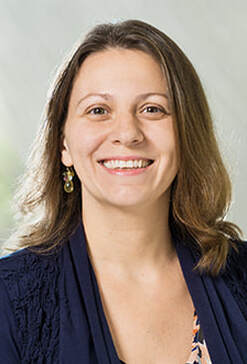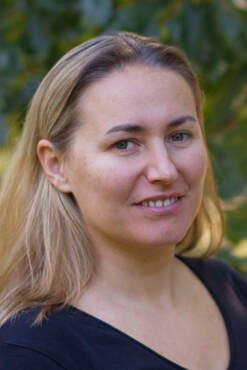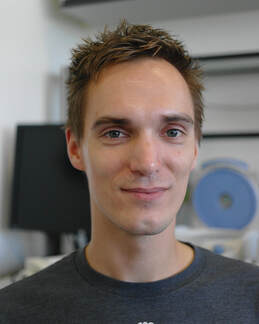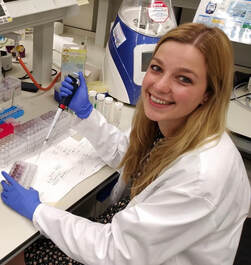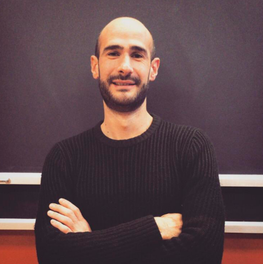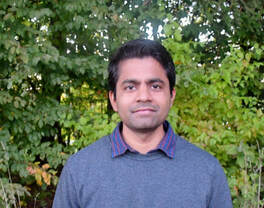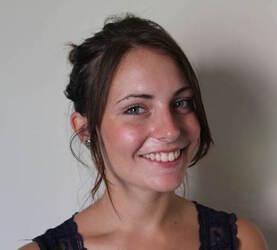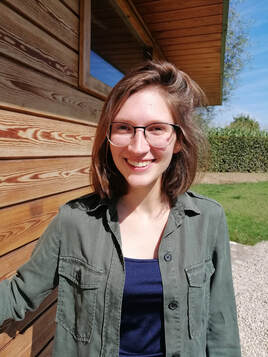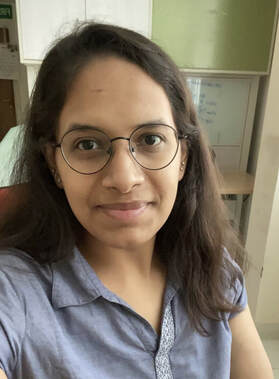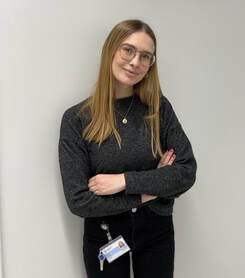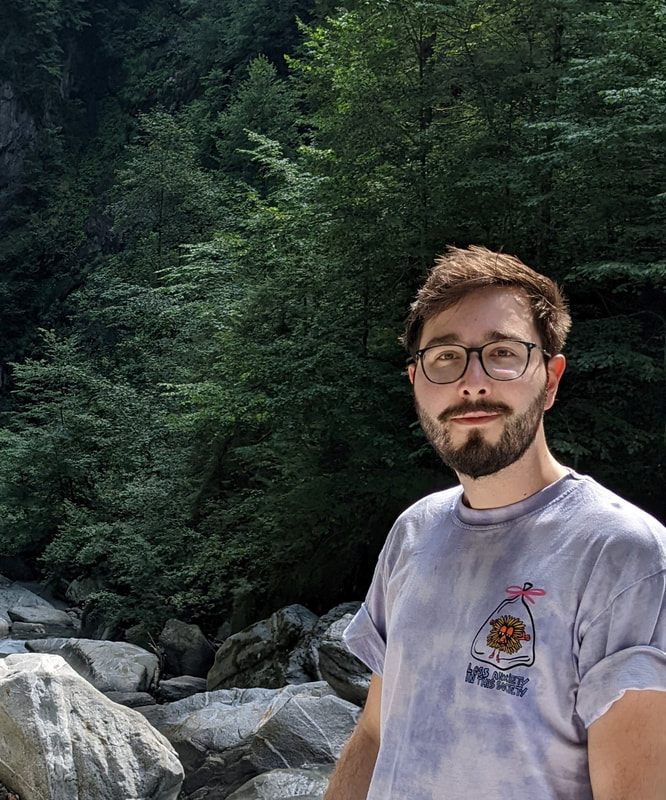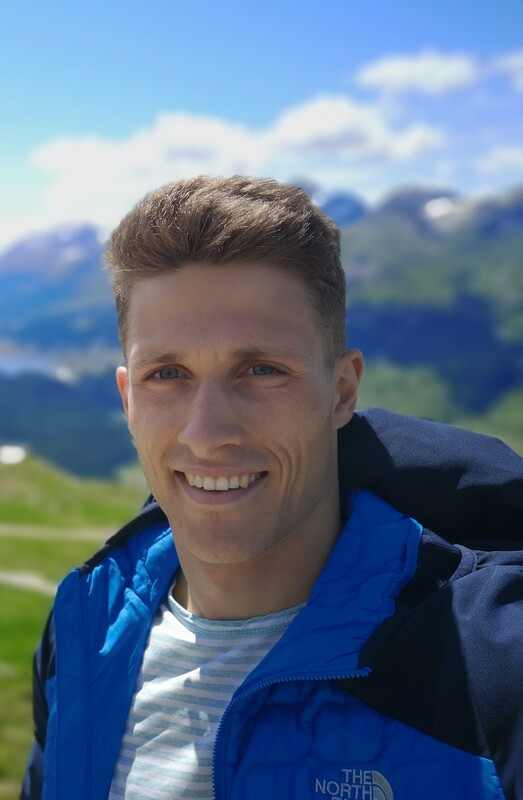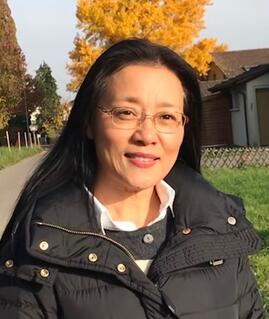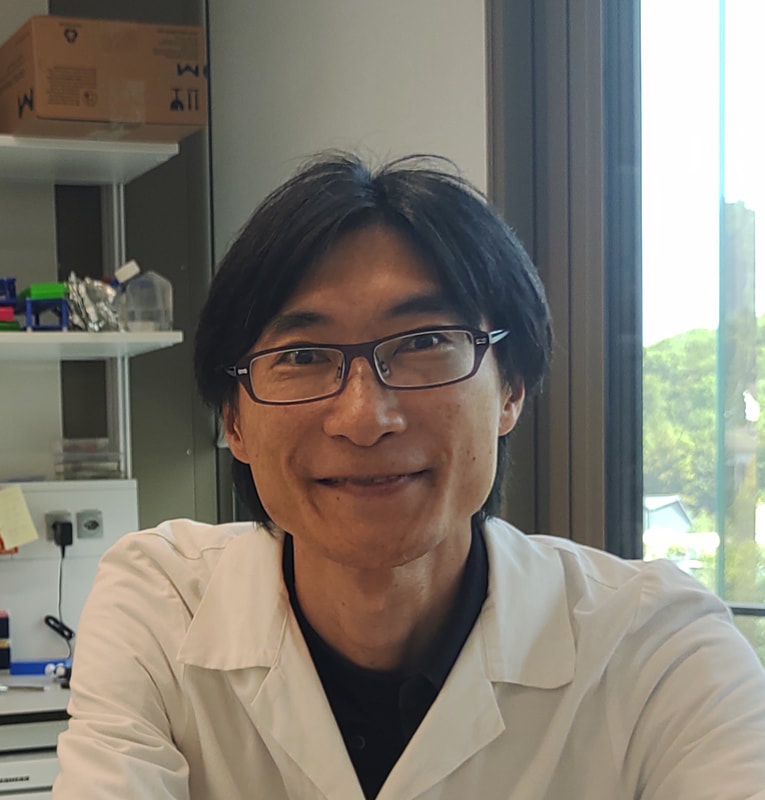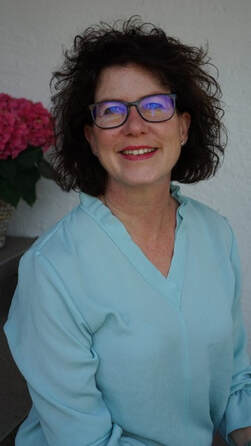Principal Investigator
|
Magdalini is Associate Professor of Biomedicine at the Department of Quantitative Biomedicine of the University of Zurich. She is fascinated by the molecular events that lead to neurodegeneration and has been studying these phenomena since 2001. Originally trained as a pharmacist in Aristotle University of Thessaloniki (Greece), she did her PhD on prion diseases in the laboratory of Adriano Aguzzi at the University Hospital of Zurich (Switzerland). As a postdoctoral fellow in the group of Don Cleveland at the University of California in San Diego (USA), she used high-throughput sequencing approaches to understand the function of TDP-43 and FUS, two RNA-binding proteins that are associated with the pathogenesis of amyotrophic lateral sclerosis (ALS) and frontotemporal dementia (FTD). She joined UZH as an SNSF Assistant Professor in 2013 and since then, her research team studies the molecular mechanisms of ALS and FTD with emphasis on the interplay between protein aggregation and RNA misregulation. Magdalini was awarded the EMBO Young Investigator Award (2018), the Georg-Friedrich Götz Prize (2015), the SNSF Professorship (2013), the HFSP Career Development Award (2013) and the NIH Pathway to Independence Award (2011). She is actively working for gender equality in academia and serves on the Gender Equality Committee of the Neuroscience Center Zurich since 2014. When not in the lab, Magdalini enjoys family time, especially with her two sons, Lennart, born in San Diego in September 2012 and Kilian, born in Zurich in 2018.
|
Academic guest
|
Geraldine is from Normandy (France). She is a cell biologist, specialized in neuroscience with a 20-year expertise in cellular work. She completed her undergraduate and Master’s degree in Biochemistry from the Université de Caen. She obtained a PhD in cell biology and neuroscience from the Université de Caen, studying the role of serine protease and cytokines in neuronal apoptotic cell death. After her PhD, she joined the Ella Bossy-Wetzel lab at the Sanford Burnham Prebys Medical Discovery Institute in La Jolla, San Diego, to study the dysfunction of mitochondrial fission in neurodegenerative diseases, with a specific focus on Huntington’s disease. She then joined the Frédéric Saudou’s lab in Institut Curie in Orsay to continue to study Huntington’s disease, this time focusing on vesicular transport defects of the BDNF receptor, TrkB. Next, she obtained an Associate Professor position at the Université Paris Saclay (previously named Université Paris Sud 11) and worked for 5 years on molecular mechanisms responsible for migration and invasion of melanocytes in aggressive uveal melanoma. Since 2016, she has joined the CEA/MIRCen to study the role of Dclk3 in Huntington’s disease, the physical interaction between LRRK2 and alpha-synuclein in Parkinson’s disease, with focus on mitochondrial and autophagy dysfunctions. In the past 2 years, she started a new project to decipher the role of a mitochondrial protein, SFXN1, in neuronal physiology and neuropathology. In June 2022, she joined the Polymenidou lab as academic guest. Outside the lab, she loves swimming, reading detective novels and spending time with her family.
|
Postdoctoral fellows
|
Marian was born in Trencin, Slovakia and studied Biology at the Constantine the Philosopher University in Nitra. He completed his master thesis during his Slovak Gas Industry (SPP) Foundation fellowship at the University of Copenhagen. Marian did his PhD at the Charles University in Prague and at the Institute of Animal Physiology and Genetics, where he was involved in the generation and characterization of the transgenic Huntington’s disease minipig model. During his EMBO Short-Term fellowship at the University of Aarhus, he studied the first minipig brains expressing mutant huntingtin and was also involved in the mapping of the pig telencephalon. He was a visiting graduate student at the University of California in San Diego where he focused on the development of cell and gene therapies for ALS. After defending his PhD thesis in 2013, and a short postdoctoral work at UCSD, Marian joined the Polymenidou lab in August 2014. In his postdoctoral studies, he aims to understand the relative contribution of the different pathogenic mechanisms thought to cause ALS and frontotemporal lobar degeneration (FTD) in patients with C9ORF72 hexanucleotide expansions. He also aims to identify the molecular mechanisms involved in sporadic ALS using iPSC-derived motor neurons. In his free time, he enjoys traveling and recreational basketball and biking.
|
|
Vera comes from The Netherlands, where she studied Molecular Neuroscience as part of the Biomedical Sciences master at the University of Amsterdam. During her study and internships, she got fascinated with the mechanisms driving human brain pathology. Therefore, she pursued a PhD at the Vrije Universiteit Amsterdam studying the relation between tau pathology and granulovacuolar degeneration, two frequent neuropathological hallmarks in dementia patients. In November 2020, she joined the Polymenidou lab as a Post-Doc, focusing on the pathways of TDP-43 dysregulation in ALS/FTD. Outside the lab, she enjoys spending time with her family, friends and cat, traveling, playing tennis, shopping and reading.
|
|
Carlo was born in a small city close to Naples, Italy and studied Medicine at the University of Genoa where he also completed his training as a Neurologist. During his residency he assisted ALS patients and was involved in several Italian and international clinical trials exploring novel therapeutic approaches for the cure of ALS. His interest in ALS investigation was not limited to a clinical approach. He was attracted by the prion and prion-like paradigm, proposed as a unifying pathogenetic mechanism for many neurodegenerative disorders, including ALS. He was interested in studying the prion-like features of TDP-43, a key player involved in ALS. With this aim, during his residency he joined the lab of Dr. Fabio Moda at Istituto Carlo Besta in Milan, to collect experimental data on TDP-43 in vitro aggregation. During this internship he acquired expertise in the in vitro amplification of prion and prion-like species by means of two powerful and innovative techniques, namely the protein misfolding cyclic amplification (PMCA) and the real time quaking induced conversion reaction (RT-QuIC). After his specialization he performed PhD thesis in the Prion Biology lab of Prof. Giuseppe Legname at the International School for Advanced Studies (SISSA) in Trieste. The aim of his PhD project was to apply the RT-QuIC technology, already developed and standardized for prion detection, to TDP-43. During his PhD, he established an RT-QuIC assay for the detection of TDP-43 aggregates in the cerebrospinal fluid of patients affected by ALS and FTD. His work provided proof of concept that the RT-QuIC technology, is feasible also for TDP-43-related disorders and can be a powerful early diagnostic tool. He joined the Polymenidou lab in August 2021 as a postdoctoral fellow. In his postdoctoral studies he aims to develop novel therapeutic agents for ALS, focusing on stabilizing TDP-43 physiological oligomerization, while counteracting its pathological aggregation. He is also interested in further developing and optimizing TDP-43 in vitro aggregation assays and to exploit them to further elucidate TDP-43 pathology. During his free time, he enjoys sports (running, beach volley, biking, climbing), reading, watching movies and spending time with his friends.
|
|
Somanath was born in Nirna, a small village in the southern part of India. He studied Bachelor of Engineering in Biotechnology at the BMS College of Engineering in Bengaluru. During his bachelor's studies, he developed a great interest in Neurosciences, so he then moved to Frankfurt to study Master of Science in Neurosciences. For his Master's thesis in the lab of Professor Jochen Roeper, he studied the functional and biophysical gating properties of voltage-gated calcium channels in the dopaminergic neurons of substantia nigra pars compacta and the firing properties of locus coeruleus neurons to understand their role in the sleep-wake cycle. He developed a particular interest in neurodegenerative diseases and he joined the lab of Professor Hilal A. Lashuel at EPFL to pursue his Ph.D. in Neurosciences. His Ph.D. thesis was focused on elucidating the structural and cellular determinants of a-synuclein seeding and toxicity using cellular and animal model systems of Parkinson’s disease. After successfully defending his Ph.D. thesis in August 2022, he joined the Polymenidou lab for his postdoctoral studies in September 2022. Here, he aims to understand the physiological and pathophysiological role of aggregation-prone TDP-43 and FUS proteins. In particular, he is interested in investigating the cell type-specific contributions to disease heterogeneity in order to better understand disease pathways using cellular and animal model systems. In his free time, he enjoys reading books, playing games such as chess, badminton, and cricket, and likes to travel.
|
PhD Students
|
Elena is originally from Italy where she studied Pharmacy at the University of Pavia. In her final year she decided to pursue a career in scientific research, which is the reason why she spent a year at Imperial College London working for her master’s thesis in the field of sciatic nerve and spinal cord regeneration. After graduating, she moved to Barcelona for two years and worked at the Centre for Genomic Regulation (CRG) investigating the molecular mechanism of axonal injury and regeneration using state-of-art techniques such as PMDS compartmentalized culture and super resolution microscopy (nSTORM). In January 2019 she joined the PolyLab as a PhD student where she tries to elucidate mechanisms of toxicity of TDP-43 and FUS in neurodegenerative diseases such as ALS and FTD. Outside the lab she likes playing volleyball and working out at the gym, but she also loves watching TV series and movies on lazy days.
|
|
Laura comes from a small village in Belgium and studied Biochemistry & Biotechnology at the University of Ghent. During her studies, she developed a keen interest in neurobiology and decided to join the Polymenidou group for her Master’s thesis. Here she studies the role of TDP-43 misregulation in ALS and FTLD. She aims to develop this passion into a long-lasting career path. She likes to spend her leisure time bouldering, cooking and venturing into nature with her Border collie. After doing her Master in our Lab, Laura decided to stay and started her PhD in March 2020.
|
|
Weijia was born in China and studied Life Science and Technology at Tokyo Institute of Technology. Due to her wide interest in RNA, she worked on alternative translation start sites of RNAs as her bachelor thesis. During her exchange at ETH Zurich in 2019, she did a research project on RNP granules and cellular stress responses and since then, she developed a strong interest in biomolecular condensates especially in neurodegenerative diseases. Therefore, after she went back to Japan, she chose to do her master thesis on protein aggregation in Parkinson’s Disease in order to learn more about the field. Weijia joined the Polymenidou lab for her PhD in December 2020 after enrolling in the Life Science Graduate School Zurich. In her free time she likes to go for walking, travelling or just stay with her cat and play video games.
|
|
Ruchi was born and brought up in Mumbai, India. After completing her Bachelors in Biotechnology she decided to study the molecular basis of human diseases in her masters program. This is when she was introduced to ALS and other motor neuron diseases. Thus, developing a keen interest in the field of neurodegeneration. After spending time at a structural biology lab and learning protein purification, Ruchi made-up her mind to pursue her original interest in the pathology associated with TDP-43. At the Polymenidou Lab, she aims to find the role of phosphorylation on TDP-43 on its normal function and transition to disease. Outside the lab, Ruchi spends her time communicating scientific knowledge to high school students, writing science articles, making mandala art and cooking.
|
|
Beatrice was born and raised in Italy where she obtained firstly a bachelor degree in Biological sciences and then graduated in the master program of Genetics and Molecular Biology at the University of Rome La Sapienza. Eager to live an international experience and specialize herself in the field of Neurobiology, she spent the second year of her master at the University of Ulm in Germany with the Erasmus exchange program. There she accomplished her master thesis investigating synaptic impairment as a causative aspect underlying the degeneration of motor neurons in ALS. Due to her keen interest in neurodegeneration and ALS pathology, once back in Italy she completed an internship at the IIT (Centre for life nanoscience) in Rome where she was involved in a project aiming at generating an in vitro model of the neuromuscular junction, based on ALS mutant human iPSCs. In November 2021 she joined the Polymenidou Lab to pursue her PhD studies. In the Polylab she aims at taking advantage of patient-derived iPSCs in order to generate new neuronal models for the characterization of ALS and FTD pathology. In her free time, she enjoys being in nature, reading, travelling and spending quality time with her friends.
|
|
Niklas grew up in Bavaria, in the south of Germany, and studied Chemistry and Biochemistry at the Ludwig Maximilian University in Munich. Due to personal circumstances of a family member, Niklas has always been highly interested in the function of the brain and the nervous system. It was this curiosity that led him to pursue his bachelor’s thesis in the field of neuropharmacology, in which he synthesized a photoswitchable fentanyl derivative for the optical control of opioid receptors. Moreover, he performed several research internships, in which he investigated the epigenetic regulation in the brain or neuronal RNA transport and other relevant topics. In his Master Thesis project, he studied the physiological formation of phase-separated ribonucleoprotein granules in neurons with a particular focus on the role of RNA availability. After working as a research assistant and in industry, Niklas joined the Polymenidou lab in the beginning of 2023 for his PhD. Here, he aims to understand the role of posttranslational modifications of TDP-43 in neuronal physiology and degeneration. When not in the lab, he enjoys doing creative things, like drawing and making music, as well as bouldering or playing basketball with his friends.
|
Master students
|
Julian was born in Offenburg, Germany, but has lived in Switzerland for a long time. Already at the beginning of his bachelor's degree in biomedicine, he became extremely interested in the brain and nervous system. Many diseases of the nervous system are fatal and not understood enough, which is why he decided to join the Polymenidou Group for his master thesis. With the help of a PhD student Elena Tantardini, he wants to gain more knowledge about the toxicity of FUS in neurodegenerative diseases such as ALS and FTD. Besides his studies, he is a passionate triathlete who completes several half-ironman distances a year and loves cooking.
|
Lab Technicians
|
Zhongning Guo comes P. R. China, where she studied medicine and worked as a physician in the clinic of neurology in the rehabilitation hospital of north-east province Hei-Long-Jiang. Since 2000, Zhongning worked as a research fellow in different research laboratories of the University of Zurich, such as pulmonary respiratory medicine, rheumatology and haematology. With this work Zhongning gained and enriched her knowledge in multiple techniques, including in molecular biology, animal experimentation, cell culture, microscopy and histology. In January 2021, she joined the Polymenidou group as a senior research technician. In her free time she enjoys reading, hiking, photography and play the piano.
|
|
Victoria Jade Kladny was a master student in our lab from September 2022 to September 2023. Since March 2024, she is working as a research assistant for the maternity leave of Elena Tantardini, PhD. Victoria was born in Vaud and grew up in a small village in the French part of Switzerland. She fell in love with genetics during secondary school and decided to do her bachelor's degree in biology at the University of Lausanne. Victoria then went to the University of Zurich to do her Masters in Genetics with a minor in Bioinformatics. In September 2022, she joined the Polymenidou lab for her Master's project, which focused on the mechanism and impact of TDP-43 self-oligomerization in cellular models of ALS and FTD, supervised by Vera Wiersma, PhD. When she is not in the lab, Victoria enjoys walking in the city or in nature, trying new sports at ASVZ and taking care of her houseplants.
|
Lab Manager
|
Takayuki came from Kobe in Japan. He studied Biology, did master and PhD in Life Science at Kyoto University with special focus on the early embryogenesis of vertebrate. To continue research on this research filed, he has furthered his career as a postdoc at Mount Sinai School of Medicine, New York. During this time, he has developed interest in the research related to human disease, and moved to University Medical Center Freiburg, Germany. Working in the lab of Professor Gerd Walz at the renal division, he has studied hereditary kidney disease genes in the context of cilia. After long experience as a researcher in life science laboratories, he has switched his career and accumulated experience as a research administrator and as a laboratory technician at Kyoto University and at UZH, respectively. In August 2023, he joined Polymenidou group as a lab manager. Outside the lab Takayuki enjoys running, skiing, and spending time with family.
|
Administration
|
Denise was born and raised in the Zurich area. Before joining UZH, she worked for various companies in Switzerland and amongst others led a private family office for a German art collector for contemporary arts. In March 2022 Denise joined DQBM as Administrative Assistant. She is married with one daughter and in her free time enjoys sports, being with friends and flying single engine airplanes.
|
